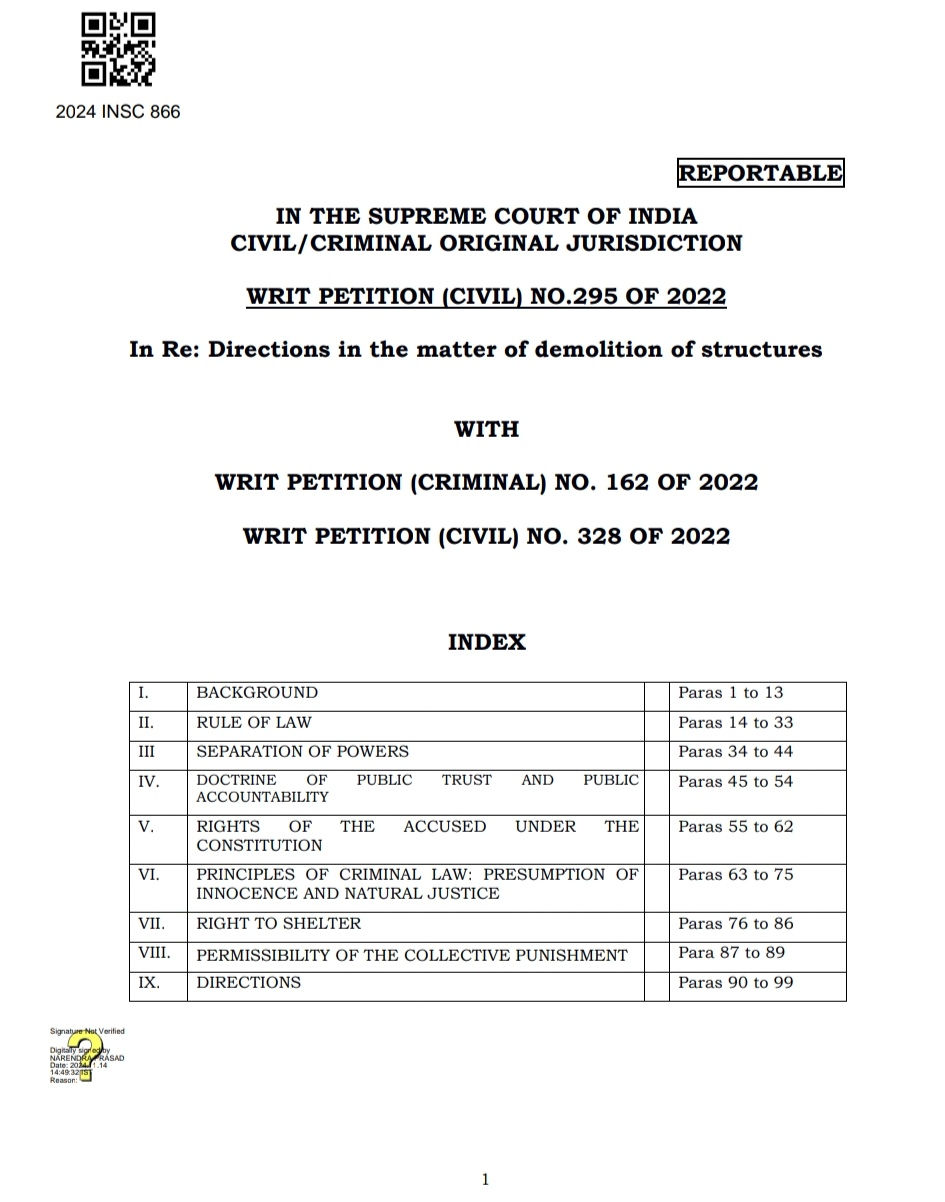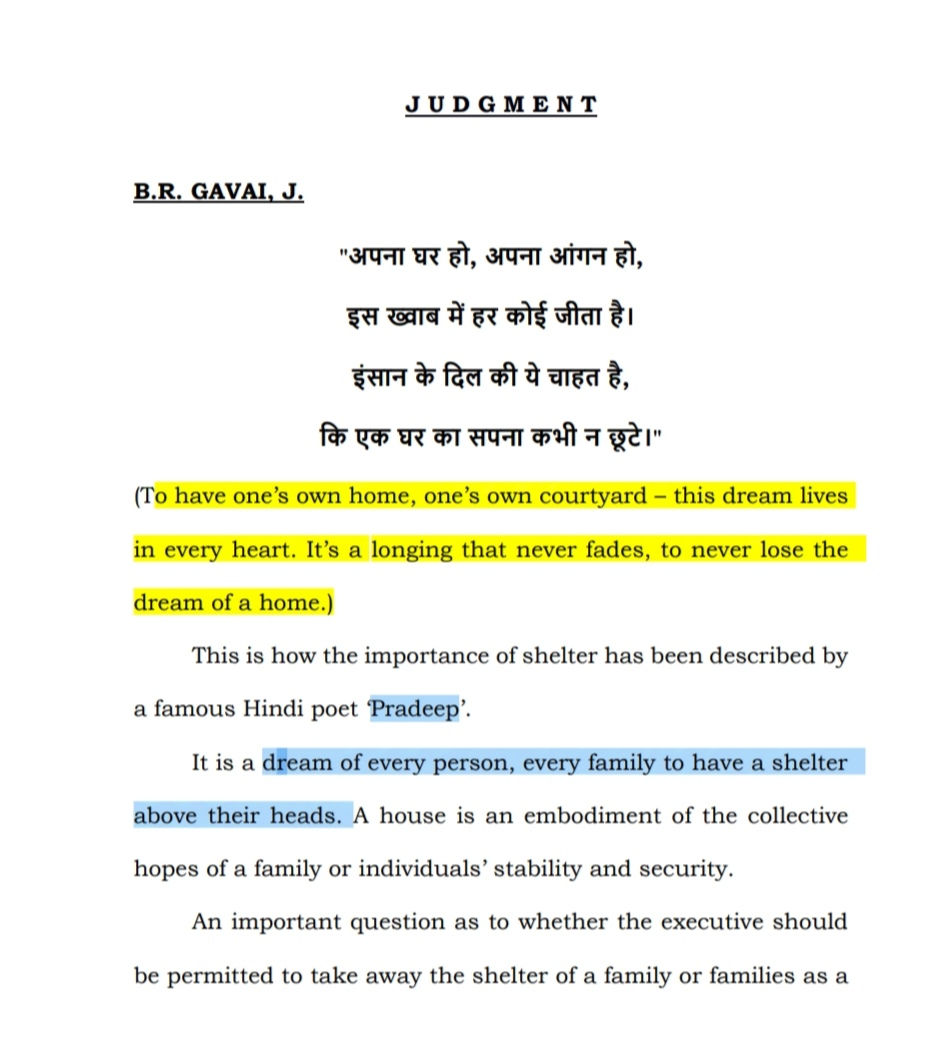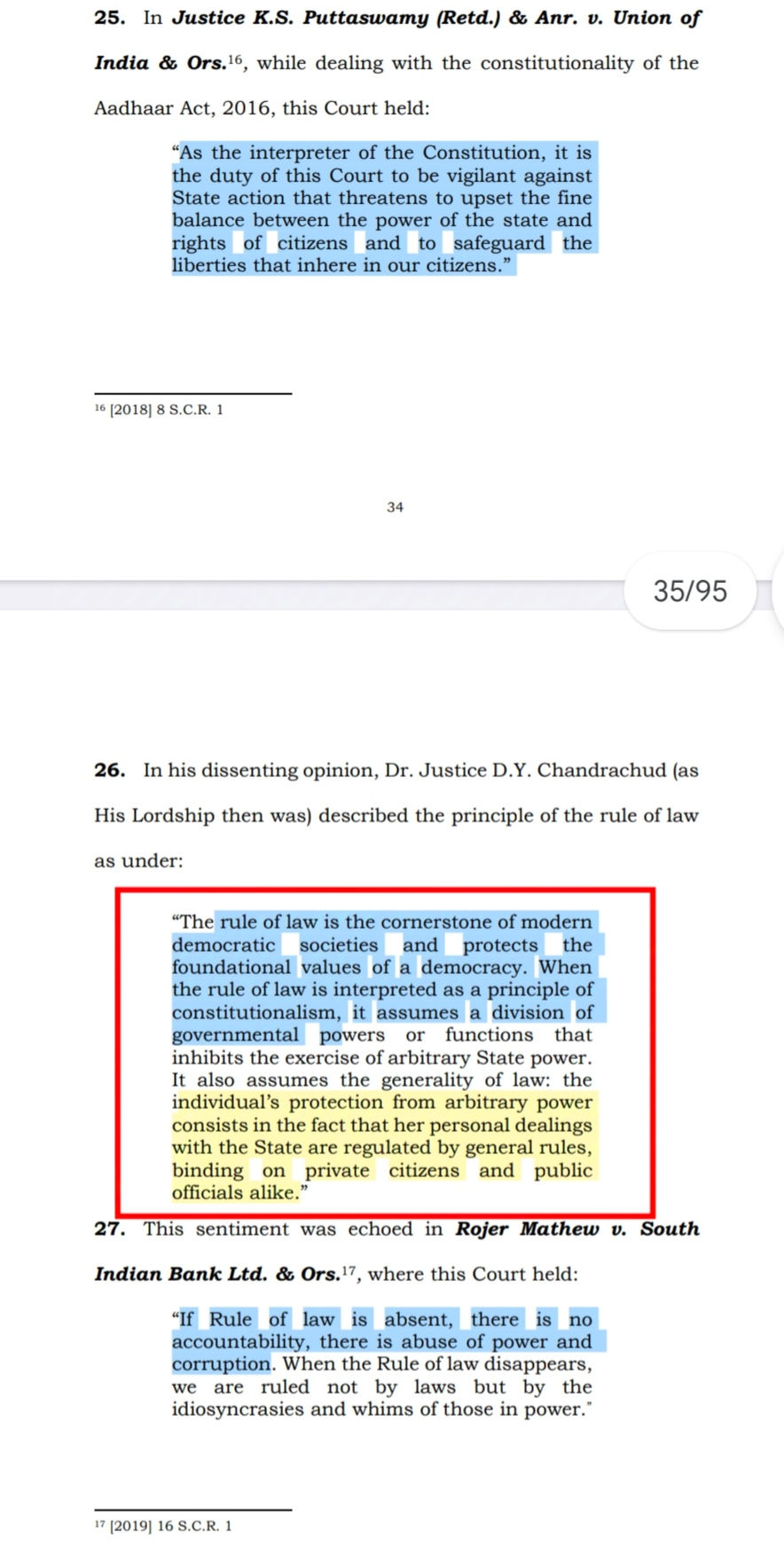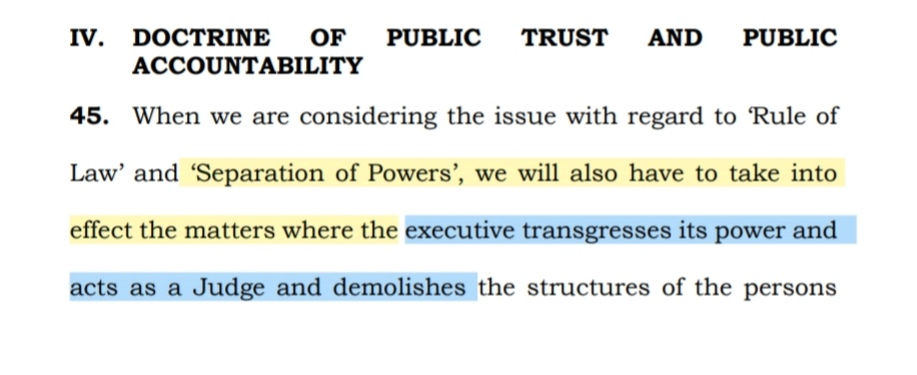The Supreme Court of India recently delivered a significant judgment addressing the misuse of state authority in carrying out demolitions without due process of law.
Criticizing such actions as a blatant display of "might is right," the court stated that states acting as judges to penalize accused persons awaiting trial violate fundamental constitutional principles.

It condemned demolitions carried out without adhering to the principles of natural justice, leaving families homeless and destitute.
The judgment, which arose from petitions filed by affected individuals across multiple states, highlighted concerns about the communal undertones of such actions and extended its ambit to bar these demolitions nationwide.
Using its extraordinary powers under Article 142 of the Constitution, the court issued binding directives to ensure fairness and accountability.

These directives include providing a minimum of 15 days’ notice before demolition, outlining the specific violations warranting the action, and offering the affected parties an opportunity to challenge the decision.
Demolitions must be videographed, and violations of these directives would lead to contempt proceedings against officials, who could also face personal liability for restitution. Notably, these guidelines do not apply to cases of encroachment on public property or demolitions ordered by courts.
The court also emphasized that collective punishment, such as demolishing the homes of accused persons and their families without trial, undermines the rule of law—a core component of the Constitution's basic structure.

It rejected the notion of penalizing innocent family members for the alleged crimes of one individual.

Reminding authorities that an accused is presumed innocent until proven guilty, the court stated that such actions amounted to "anarchy" and were unconstitutional.
Reaffirming the principle of separation of powers, the court declared that only judicial bodies have the authority to determine guilt and impose penalties.
Arbitrary demolitions bypass the judicial process, eroding public trust and violating the rights of citizens.
The judgment further stressed that a home represents more than property—it is a source of stability, dignity, and belonging.
Any decision to demolish must be the last resort, justified by compelling reasons and lawful procedures.

The Supreme Court’s ruling aims to rein in the misuse of executive power while safeguarding citizens’ rights. By holding public officials accountable and establishing clear guidelines, it seeks to uphold the rule of law and ensure that governance remains fair, transparent, and just.




Comments